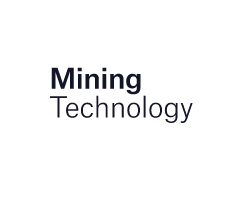Canyon Fuel Agrees to Calculate the Social Cost of Carbon for the First Time

By Florence Jones
March 15, 2023 - Utah’s largest coal company, Canyon Fuel, has agreed to calculate its Social Cost of Carbon (SCC) as part of a settlement agreement. This will be the first time a coal company has voluntarily agreed to calculate its climate damages.
The deal, which also includes the state of Utah and the US Department of the Interior, would see environmentalists drop their lawsuit challenging the expansion of a coal mine on federal land, as part of the agreement.
The SCC is a metric used to quantify the costs and benefits of emitting one additional tonne of carbon dioxide, and is being used with increasing frequency to measure the damage done by industrial operations. SCC is calculated in monetary terms and incorporates forecasted future costs, and the sum can then be used to inform decision making.
The UK government now uses a “carbon value”, measured in pounds per tonne of carbon dioxide equivalent, to inform policy decisions. SCC is also used to determine government climate regulations in the US and Canada.
According to the Organisation for Economic Co-operation and Development: “The Social Cost of Carbon is usually estimated as the net present value of climate change impacts over the next 100 years (or longer) of one additional tonne of carbon emitted to the atmosphere today. It is the marginal global damage costs of carbon emissions.”
Canyon Fuel Lawsuit
The federal lawsuit comes as the Biden administration considers a hike in the underlying numbers used to determine SCC in US policy considerations. Under the current system, the cost of emitting one tonne of carbon dioxide stands at $51 but may rise to $190 per tonne, meaning that companies would have a higher SCC from the same operations.
The lawsuit was bought forward in 2015 by WildEarth Guardians and the Grand Canyon Trust, in which they argued that the US government violated the National Environmental Policy Act when issuing a lease to expand the Skyline Mine in the Manti-La Sal National Forest. It claims that the 2002 environmental analysis used to justify the mine failed to account for climate damages of the mine’s expansion.
In addition to calculating the social cost of the mine’s expansion Canyon Fuel, a subsidiary of Wolverine Fuels, will be required to relinquish leases with nine million tons of coal at its Sufco and Dugout Canyon mines. The company also agreed last week to use the $51 per tonne of carbon dioxide value to calculate the SCC of its operations.
Aaron Paul, a staff attorney for the Grand Canyon Trust said in a statement: “I hope that act of self-reflection helps push the government and others in the fossil-fuel industry to reckon with how much our kids stand to pay if we keep burning fuels like coal”.
The agreement of Canyon Fuel to implement the SCC could be legally significant. Mark Squillace, a law professor at the University of Colorado, told E&E News: “It suggests a willingness on the part of the government to use the [SCC] in not just coal reviews but all agency decisions with climate implications. […] it could be a bigger deal for oil and gas development than for coal”.

